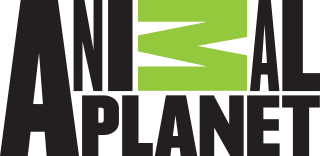| The Comedy Network | |
|---|---|
| Launched | October 17, 1997 |
| Owned by | Bell Media |
| Picture format | 1080i HDTV (downscaled to letterboxed 480i for the SDTV feed) |
| Country | Canada |
| Broadcast area | Canada |
| Headquarters | Toronto, Ontario |
| Sister channel(s) | CTV Bravo Space Gusto Much |
| Website | www |
Availability | |
| Satellite | |
| Bell TV | Channel 625 (East; SD) Channel 626 (West; SD) Channel 1740 (East; HD) |
| Shaw Direct | Channel 547 (West; SD) Channel 548 (East; SD) Channel 85/585 (East; HD) |
| Cable | |
| Available on most cable systems | Channel slots vary on each operator |
| IPTV | |
| Bell Aliant Fibe TV | Channel 208 (East; SD) Channel 431 (East; HD) |
| Bell Fibe TV | Channel 625 (East; SD) Channel 626 (West; SD) Channel 1625 (East; HD) Channel 1626 (West; HD) |
| Bell MTS | Channel 115 (East; SD) Channel 116 (West; SD) |
| Optik TV | Channel 173 (West; SD) Channel 710 (East; HD) |
| SaskTel | Channel 74 (West; SD) Channel 374 (East; HD) |
| VMedia | Channel 50 (East; HD) |
| Zazeen | Channel 110 (East; HD) |
The Comedy Network (often shortened to Comedy) is a Canadian English-language specialty channel owned by Bell Media, which focuses primarily on comedy programming. The channel operates two time-shifted feeds, running on Eastern and Pacific Time Zone schedules.

Canada is a country in the northern part of North America. Its ten provinces and three territories extend from the Atlantic to the Pacific and northward into the Arctic Ocean, covering 9.98 million square kilometres, making it the world's second-largest country by total area. Its southern border with the United States, stretching some 8,891 kilometres (5,525 mi), is the world's longest bi-national land border. Canada's capital is Ottawa, and its three largest metropolitan areas are Toronto, Montreal, and Vancouver.
A specialty channel can be a commercial broadcasting or non-commercial television channel which consists of television programming focused on a single genre, subject or targeted television market at a specific demographic.
Bell Media Inc. is the mass media subsidiary of BCE Inc.. Its operations include television broadcasting and production, radio broadcasting, digital media and Internet properties including Sympatico.ca.
Contents
On September 12, 2019, The Comedy Network will rebrand as CTV Comedy Channel.
CTV is a Canadian English-language terrestrial television network launched in 1961. Since 2000, it is owned by the CTV Inc. subdivision of the Bell Media division of BCE, Inc. It is Canada's largest privately or commercially owned network, and has consistently been placed as Canada's top-rated network in total viewers and in key demographics since 2002, after several years trailing the rival Global Television Network in key markets.




















